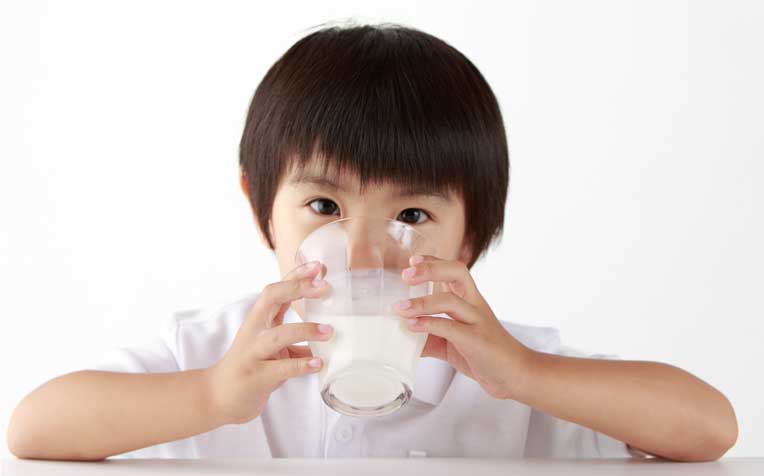
Food allergies are relatively common in children, especially cow's milk and egg allergies. Fortunately, children tend to outgrow these allergies.
Food allergy treatment
The best treatment for a food allergy is to avoid the allergenic food. The child can be given a healthy alternative instead, to prevent a nutritional deficiency.
“If a child has a cow’s milk allergy, the mother can be advised to continue breastfeeding or to put the child on an alternative milk formula such as a soy formula or an extensively hydrolysed milk formula or an amino acid formula,” says Associate Professor Anne Goh, Head and Senior Consultant, Allergy Service, KK Women’s and Children’s Hospital (KKH), a member of the SingHealth group..
Children with cow’s milk allergy and egg allergy commonly outgrow these food allergies by the age of five and subsequently, will be able to eat these foods without a reaction. However, fewer children outgrow a peanut allergy.
“The diagnosis of a food allergy should be confirmed by an allergist and proper follow-up should be done so that the foods linked to an allergy that children are likely to outgrow, can be re-introduced in a timely manner,” says Prof Goh. This would also help ensure the child doesn’t avoid too many foods unnecessarily, which may impact his growth.
Parents should be taught how to administer an adrenaline auto-injector in the event the allergic food is accidentally consumed. This can be life-saving for a child who has a severe food allergy such as a peanut allergy.
Can a food allergy affect a child's growth and development?
A child’s growth and development is unlikely to be affected if there is an allergy to only one or two foods and the child is otherwise eating normally. However, children with multiple food allergies may require dietary advice on alternative healthy foods to ensure they get adequate nutrition.
Caring for children with food allergies
- Once a child has been properly diagnosed with a food allergy, you should make sure that your child’s medication and adrenaline auto-injector are always within easy reach and that, in your absence, other adults (such as kindergarten staff or school teachers) are aware of his situation and know what to do.
- You should consult a doctor immediately if the child has difficulty breathing, has severe vomiting and diarrhoea with abdominal pain, and looks pale and lethargic.
Ref: R14
Related Articles
Conditions & Treatments
Public Events
Get the Health Buddy App
© 2025 SingHealth Group. All Rights Reserved.















 Get it on Google Play
Get it on Google Play